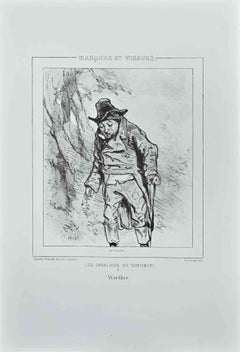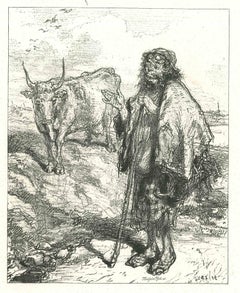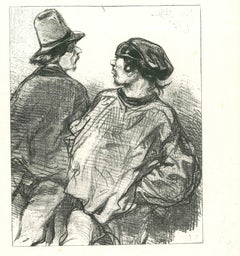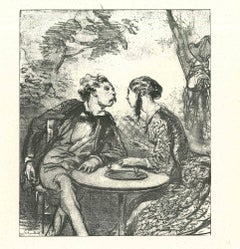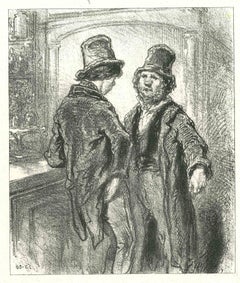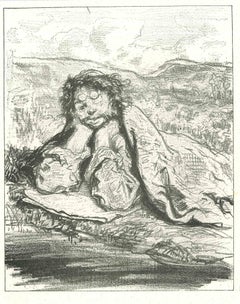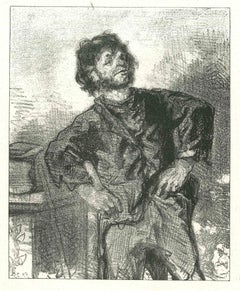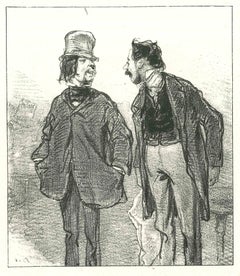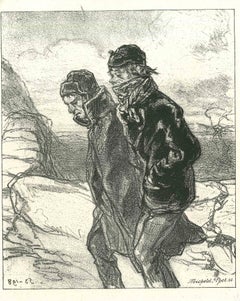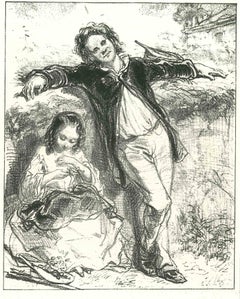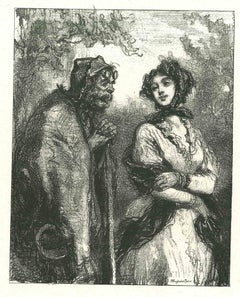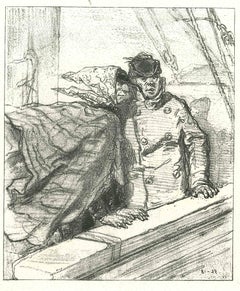Paul Gavarni On Sale
1850s Modern Figurative Prints
Lithograph
1880s Modern Figurative Prints
Paper, Lithograph
1880s Modern Figurative Prints
Paper, Lithograph
1880s Modern Figurative Prints
Paper, Lithograph
1880s Modern Figurative Prints
Paper, Lithograph
1880s Modern Figurative Prints
Paper, Lithograph
1880s Modern Figurative Prints
Paper, Lithograph
1880s Modern Figurative Prints
Paper, Lithograph
1880s Modern Figurative Prints
Paper, Lithograph
1880s Modern Figurative Prints
Paper, Lithograph
1880s Modern Figurative Prints
Paper, Lithograph
1880s Modern Figurative Prints
Paper, Lithograph
1880s Modern Figurative Prints
Paper, Lithograph
1880s Modern Figurative Prints
Paper, Lithograph
Paul Gavarni On Sale For Sale on 1stDibs
How Much is a Paul Gavarni On Sale?
Paul Gavarni for sale on 1stDibs
Paul Gavarni was the nom de plume of Sulpice Guillaume Chevalier, a French illustrator who was born in Paris. The story is told that he took his name from Gavarnie in Luz-Saint-Sauveur, where he had taken a journey into the Pyrenees. His first published drawings were for the magazine Le Journal des Dames et des Modes. At the time, Gavarni was barely 30-years old. His sharp and witty drawings gave these generally commonplace and unartistic figures a life-likeness and an expression which soon won him a name in fashionable circles. He gradually gave greater attention to this more congenial work, and ultimately stopped working as an engineer to become the director of Journal Des Gens du Monde. Gavarni followed his interests and began a series of lithographed sketches in which he portrayed the most striking characteristics, foibles and vices of the various classes of French society. The letterpress explanations attached to his drawings were short, but were forcible and humorous, if sometimes trivial, and were adapted to the particular subjects. At first, he confined himself to the study of Parisian manners, more especially those of the Parisian youth. Most of his best work appeared in Le Charivari. Some of his most scathing and most earnest pictures, the fruit of a visit to London, appeared in L'Illustration. He also illustrated Honoré de Balzac's novels and Eugène Sue's Wandering Jew. Among his illustrated works were Les Lorettes, Les Actrices, Les Coulisses, Les Fasizionables, Les Gentilshommes bourgeois, Les Artistes, Les Débardeurs, Clichy, Les Étudiants de Paris, Les Baliverneries Parisiennes, Les Plaisirs champêtres, Les Bals masqués, Le Carnaval, Les Souvenirs du Carnaval, Les Souvenirs du bal Chicard, La Vie des Jeunes Hommes and Les Patois de Paris. He had now ceased to be the director of Des Gens du monde but he was engaged as an ordinary caricaturist of Le Charivari and, while making the fortune of the paper, he made his own. His name was exceedingly popular and his illustrations for books were eagerly sought for by publishers. A single frontispiece or vignette was sometimes enough to secure the sale of a new book. Always desiring to enlarge the field of his observations, Gavarni soon abandoned his once-favorite topics. He no longer limited himself to such types as the Lorette and the Parisian student or to the description of the noisy and popular pleasures of the capital but turned his mirror to the grotesque sides of family life and of humanity at large. But while showing the same power of irony as his former works, enhanced by a deeper insight into human nature, they generally bear the stamp of a bitter and even sometimes gloomy philosophy. At one point Gavarni was imprisoned for debt in the debtors' prison of Clichy. After his release, he published his experiences in a work called L'Argent (Money). Gavarni visited England in 1849. On his return, his impressions were published in the book Londres et Les Anglais, illustrés par Gavarni (1862) by Émile de la Bédollière. Most of these last compositions appeared in the weekly paper L'Illustration. In 1857, he published in one volume the series entitled Masques et visages and in 1869, about two years after his death, his last artistic work, Les Douze Mois, was given to the world. Gavarni was much engaged, during the last period of his life, in scientific pursuits and this fact must perhaps be connected with the great change which then took place in his manner as an artist. He sent several communications to the Académie des Sciences, and until he died on 23 November 1866, he was eagerly interested in the question of aerial navigation. It is said that he made experiments on a large scale to find the means of directing balloons, but it seems that he was not so successful in this line as his fellow artist, the caricaturist and photographer, Nadar.
A Close Look at Modern Art
The first decades of the 20th century were a period of artistic upheaval, with modern art movements including Cubism, Surrealism, Futurism and Dadaism questioning centuries of traditional views of what art should be. Using abstraction, experimental forms and interdisciplinary techniques, painters, sculptors, photographers, printmakers and performance artists all pushed the boundaries of creative expression.
Major exhibitions, like the 1913 Armory Show in New York City — also known as the “International Exhibition of Modern Art,” in which works like the radically angular Nude Descending a Staircase by Marcel Duchamp caused a sensation — challenged the perspective of viewers and critics and heralded the arrival of modern art in the United States. But the movement’s revolutionary spirit took shape in the 19th century.
The Industrial Revolution, which ushered in new technology and cultural conditions across the world, transformed art from something mostly commissioned by the wealthy or the church to work that responded to personal experiences. The Impressionist style emerged in 1860s France with artists like Claude Monet, Paul Cézanne and Edgar Degas quickly painting works that captured moments of light and urban life. Around the same time in England, the Pre-Raphaelites, like Edward Burne-Jones and Dante Gabriel Rossetti, borrowed from late medieval and early Renaissance art to imbue their art with symbolism and modern ideas of beauty.
Emerging from this disruption of the artistic status quo, modern art went further in rejecting conventions and embracing innovation. The bold legacy of leading modern artists Georges Braque, Pablo Picasso, Frida Kahlo, Salvador Dalí, Henri Matisse, Joan Miró, Marc Chagall, Piet Mondrian and many others continues to inform visual culture today.
Find a collection of modern paintings, sculptures, prints and other fine art on 1stDibs.
Finding the Right Figurative-prints-works-on-paper for You
Bring energy and an array of welcome colors and textures into your space by decorating with figurative fine-art prints and works on paper.
Figurative art stands in contrast to abstract art, which is more expressive than representational. The oldest-known work of figurative art is a figurative painting — specifically, a rock painting of an animal made over 40,000 years ago in Borneo. This remnant of a remote past has long faded, but its depiction of a cattle-like creature in elegant ocher markings endures.
Since then, figurative art has evolved significantly as it continues to represent the world, including a breadth of works on paper, including printmaking. This includes woodcuts, which are a type of relief print with perennial popularity among collectors. The artist carves into a block and applies ink to the raised surface, which is then pressed onto paper. There are also planographic prints, which use metal plates, stones or other flat surfaces as their base. The artist will often draw on the surface with grease crayon and then apply ink to those markings. Lithographs are a common version of planographic prints.
Figurative art printmaking was especially popular during the height of the Pop art movement, and this kind of work can be seen in artist Andy Warhol’s extensive use of photographic silkscreen printing. Everyday objects, logos and scenes were given a unique twist, whether in the style of a comic strip or in the use of neon colors.
Explore an impressive collection of figurative art prints for sale on 1stDibs and read about how to arrange your wall art.
